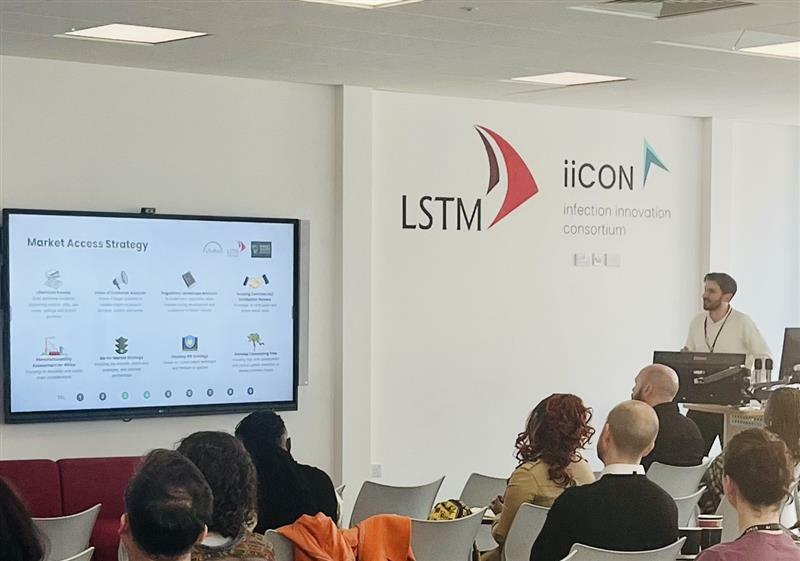
Congratulations to Aaron Argomandkhah who has been successful in his TISMA (Tackling Infections: Skills & Mobility Accelerator) application. TISMA is a BBSRC funded FTMA award which LSTM has been awarded in partnership with LSHTM.
The intention of the TISMA project is to “enable cross-sector and interdisciplinary knowledge exchange within the biosciences by facilitating mobility between academic, business, public sector and third sector organisations.
Aarons project: Access for Impact: Supporting Adoption of Global Health Innovations in LMICs is about understanding how to plan and facilitate access to innovative health technologies in low- and middle-income countries (LMICs). Currently, when new medicines or technologies are developed, the systems that get these products to patients are often complicated, fragmented, or underdeveloped, and the market conditions are not favourable for the type of disease or challenge the innovation is addressing. This results in communities not benefiting from these interventions.
Through the TIMSA programme, he will work with the consultancy organisation Market Access Africa to learn how these systems operate on the ground. He will explore what practical strategies work and how to implement them, and how partnerships, policies, and local knowledge can help overcome the barriers that stop health innovations from reaching the people who need them most.
Aaron said: “When I return to LSTM, I’ll bring back this knowledge to help colleagues bring their health interventions to the communities in LMICs. The ultimate goal is to help the innovations developed at LSTM make a real-world impact by improving health outcomes where they are needed most”
Dr Becky Jones-Phillips, Director of E&I said: “I am delighted to see this TISMA programme get underway and look forward to the tangible and practical approaches we can adopt at LSTM as we try and accelerate more healthcare products to market. I congratulate Aaron for his hard work in developing LSTM’s market access programme, and it’s great to see the importance of this work recognised as a critical part of the translational pathway’